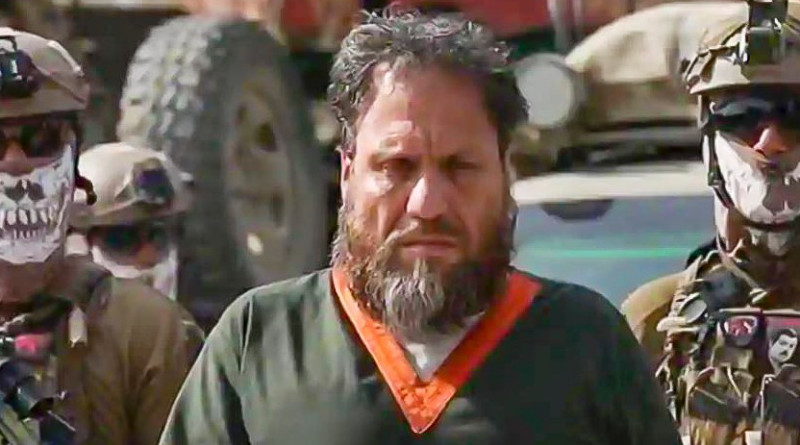On Islamic State Khorasan Chief’s Arrest: The Said And Unsaid – OpEd
The arrest of Islamic State Khorasan (IS-K) chief Abdullah Orakzai alias Aslam Farooqi is no mean achievement. Au contraire, it’s an accomplishment par excellence because, to put it in cricketing parlance, it’s a hat-trick of ‘firsts’ — one, this is the first time when an IS-K chief has been captured alive. Two, it’s the first time that any IS leader has been apprehended along with more than one and a half dozen of his fighters, and three, the IS-K chief was virtually ‘uncapturable’ as he seldom left the safe havens provided by Pakistan army spy agency ISI (Inter Services Intelligence).
Those who consider mention of the IS-K chief being provided safe haven by ISI as an attempt to malign the Pakistan army may like to logon to Canada.ca, which is the official website of the Government of Canada which states, “Farooqi was an advocate of appeasement with Pakistan, in exchange for being granted a safe haven by the Pakistani authorities. Since then, Farooqi has spent most of his time inside Pakistan, as have most of the other senior figures in the organisation. According to IS-K sources, Pakistani intelligence (ISI) have even started providing some financial support to the organisation.”
While confirming Farooqi’s arrest, National Directorate of Security (NDS) spokesperson Haris Jebran, declined to provide any further information as to from where and under what circumstances was the IS-K chief and his fighters captured. Whereas, Jebran may be having good reasons for withholding this information, but two issues raise suspicions — one, why the secrecy about the location from where the IS-K chief was apprehended and how? Two, why is Pakistan so desperate to get his custody? Could there be a possible connection between Kabul’s silence and Islamabad’s desperation?
One may cite ‘security reasons’ to defend Kabul’s reluctance in disclosing details of how Farooki and his band of 19 fighters were apprehended. Similarly, Islamabad’s frantic bid to get hold of him may be for bringing the IS-K chief to justice for the crimes his group committed in Pakistan. But then, IS-K has committed far more heinous crimes in Afghanistan than in Pakistan.
Under such circumstances, instead of insisting on his immediate custody, Islamabad could have used a positive diplomatic approach by requesting Kabul that once it has tried and sentenced the IS-K chief, he could be handed over to Pakistan for facing trial for his crimes there. Islamabad could make an offer that Farooqi would have to undergo the maximum of the two sentences that had been awarded to him.
Returning to the apprehensions that arise out of Kabul’s silence and Islamabad’s cacophony. Let’s first take Kabul’s refusal to disclose the location and circumstances of the IS-K chief’s arrest. Could it be that circumstances of Farooqi’s capture were akin to that of Kulbhushan Jadhav? Was the IS-K chief ‘picked up’ from Pakistani soil in a covert trans-border operation? Or could it be that Farooqi was lured into leaving his safe haven on Pakistani soil and he unwittingly walked into a trap set by an intelligence agency, the identity of which Kabul doesn’t want to compromise? Lastly, did some intelligence agency strike a deal with a tribal warlord in Pakistan to betray the IS-K chief and hand him and 19 pf his fighters to the NDS?
Since the IS-K chief and his fighters would be well aware of their fate in the eventuality of them being apprehended by the Afghan security forces, it is inconceivable that they would meekly surrender themselves and suffer unspeakable brutalities before being put to death. Furthermore, fighting unto death would make them martyrs with an assured place in ‘jannat’ (paradise). But in case they had been disarmed by deceit, then they had no other option but to give themselves up to their captors without a fight. So, even though the NDS spokesperson hasn’t disclosed any details, the possibility of the IS-K chief and his fighters being the victims of the ‘mind game’ inspired by the Jadhav abduction episode that was played by some intelligence agency cannot be ruled out.
As far as Islamabad is concerned, its main worry is that since Farooqui could start singing like a canary, getting his custody is the only way to avoid embarrassment. It knows that should Farooqi make the IS-K’s link with Pakistan army public, then it would not only expose Rawalpindi’s role in orchestrating attacks against the Hindu, Sikh and Shia minorities in Afghanistan but also reveal the Pakistan army, IS-K, Haqqani network and Muqami Tehreek-eTaliban (MTT) nexus responsible for attacking the US led NATO forces in Afghanistan. Pakistan may be impervious to international criticism, but when it dawns on the international community that they are being led up the garden path, many countries may rethink on giving aid to Pakistan and redefining relations.
Lastly, someone needs to tell Islamabad that when Pakistan army could not even stop former Tehreek-e-Taliban (TTP) and Jamaat-ur-Ahrar (JuA) spokesperson Ehsanullah Ehsan who was involved in 2014 Army School Peshawar massacre, from escaping along with his entire family, then with what face is it demanding that the IS-K chief be handed over to it?
Tailpiece: After the March 25 Kabul Gurdwara attack that left 25 worshippers dead, Pakistan Foreign Office (FO) spokesperson Aisha Farooqui had said, “Seeking to implicate Pakistan in this terrorist attack is part of the desperate attempts India is making to divert attention from its own unacceptable actions and state-terrorism in India-occupied Jammu & Kashmir.”
But since the IS-K has already accepted responsibility for this attack and its chief is in the custody of NDS in Kabul, the FO better start working on its next rebuttal because this time it would be facts coming straight from the horse’s mouth.

